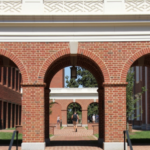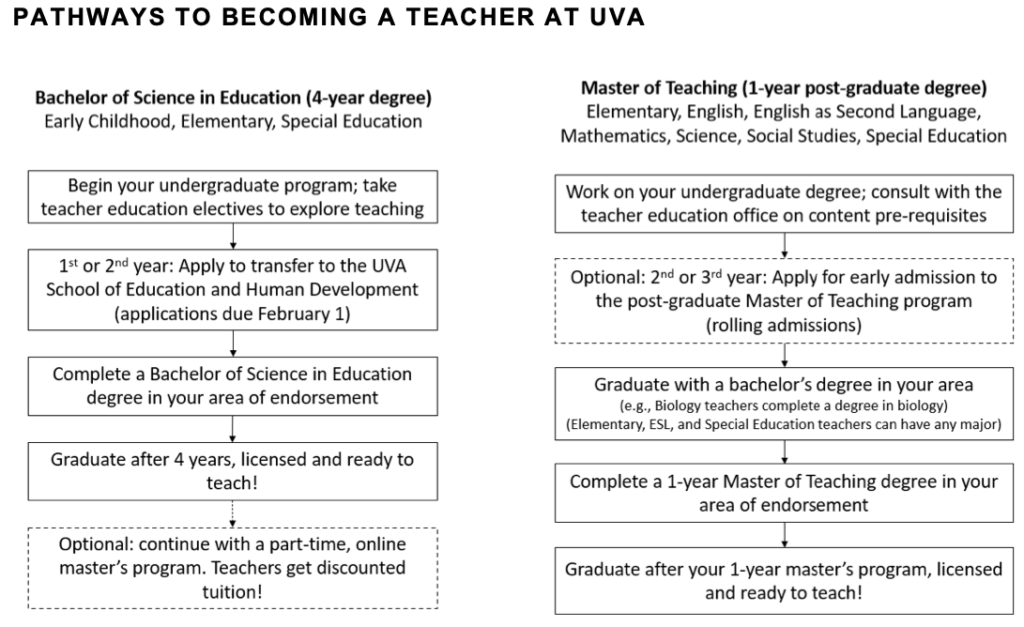 I had barely started a draft of a series on Virginia’s schools of education when it was inadvertently released Saturday. We took it down when we discovered the error.
I had barely started a draft of a series on Virginia’s schools of education when it was inadvertently released Saturday. We took it down when we discovered the error.
by James C. Sherlock
People on both sides of the political divide have acknowledged enormous challenges to Virginia’s pre-K-12 public education system.
Some of the problems we all know about:
- poor minority children had disproportionate learning deficits pre-COVID;
- poor minority children experienced disproportionate learning losses during COVID;
- increasing stress for teachers, parents and students;
- teacher shortages.
We just disagree about the causes and appropriate mitigations.
News this series will break for many readers will include:
- the meager and declining productivity of Virginia’s schools of education;
- the astounding Virginia regulatory requirements for Bachelor of Education teacher training and the meager requirements for student teaching;
- the major expansions since 2020 to regulations that govern additional fields of knowledge that both teacher education programs and active K-12 teachers must learn and incorporate into the teaching to their students;
- Virginia’s closed loop system of ed school regulatory development;
- Alternative routes to licensure to see if all of those regulatory requirements for a Bachelor of Education are really necessary to produce a first-year public school teacher. We will find out that not even the Board of Education thinks they are.
Those are some of the sausage-makings of the train wreck that is the problems that we all can see in our public schools.
We will take a deep dive into both the requirements for and the performance of Virginia’s teacher education system, Virginia’s laws governing that system and its regulation by the Board of Education to see what part those issues play in causing or mitigating the problems we already know about.
In doing so we will discover issues that most of us had no idea about.
Big picture – Bachelor of Education. Virginia’s Bachelor of Education undergraduates are expected by regulation as prerequisite to graduation and licensing:
- to know a good deal about nearly everything – you will not think that an exaggeration when your see the regulations;
- to know nearly everything about the areas in which they attain special teaching certificates;
- to demonstrate that knowledge in a nationally substandard number of student teacher hours; and
- to pass standardized examinations that, witnessed by the near 100% pass rates statewide, cannot possibly test rigorously all of the things new teachers are required to know.
Productivity. We will hold Virginia’s schools of education schools up to other states’ teacher education systems’ productivity — the rate at which new teachers are created — as reflected in the federal Department of Education’s Title II Higher Education Act data.
The news is not good on that front.
Virginia laws and Board of Education Regulations. You will find the ever-expanding regulatory requirements for teacher knowledge and performance driven by the recent updates to Virginia laws to be astounding.
You will see that Virginia’s Board of Education standard for supervised student teaching conducted in undergraduate schools of education, which are the source of 96% of Virginia’s undergraduate education completers, is far lower than many other states that have published such standards.
So, the Board of Education requires new Virginia teachers to absorb a world of theoretical knowledge with below-average numbers of classroom hours in which to practice and demonstrate skills before they show up at your child’s school as a teacher.
You will agree the requirements would stress any teacher out, much less a new one.
Those same regulations also stress the state’s undergraduate schools of education and K-12 schools.
But they purposely feather the nests of the graduate schools of education, which have been omnipresent, especially the UVa ed school faculty, in the drafting and approval of those regulations by the Board of Education.
UVa and Virginia’s Closed-loop Ed School Regulatory System. The University of Virginia’s School of Education and Human Development is a graduate school that still offers an undergraduate program. It is Virginia’s highest-rated education school in all of the national ranking systems.
EdPolicyWorks and the other UVa centers, labs, and projects have formed a quasi-official think tank for the Board of Education, with directed funding every year in the state budget.
They have been the primary source of the very regulations that Virginia’s education schools are responsible for fulfilling. There is directed funding in the state budget every year for those centers, labs and projects and support to the Board of Education.
Teacher education program differences. I will show how Virginia’s Schools of Education undergraduate programs compare to one another in important metrics. They are very different.
Alternative Routes. We will look at both Career Switchers and Teach for America (TFA).
TFA, which focused on preparing teachers for work in impoverished areas, has had a partnership with D.C. Public Schools (DCPS) since 1992. TFA provided 170 teachers that were actively working in DCPS schools in 2020, including its 2014 Teacher of the Year.
If the Commonwealth in total has twenty TFA teachers I will be surprised. TFA teachers work only in Alexandria (new program) and a couple of counties in Southwest Virginia.
Alternative route teachers get a provisional license, but are in classrooms today. And the reputations of those teachers are generally excellent.
In D.C., the National Capitol TFA region itself has been under contract to DCPS for years as a paid consultant on new teacher recruitment.
Bottom line. Virginia’s traditional four-year degree Bachelor of Education programs are a mystery to me for a several reasons:
- Virginia schools get 96% of their new teachers through the traditional Bachelor of Education programs like those of UVa. The productivity of those programs measured in graduates per year is declining. The total productivity of Virginia’s traditional and alternative programs is too low to support Virginia’s new teacher requirements;
- I frankly do not know how it is possible for Virginia’s traditional undergraduate teacher education programs to teach, or their students to absorb and practice in student teaching all of the material required by state regulations. Neither will you when I detail them for you. That is before we inquire into who, exactly, among the graduate school and research-focused faculty at the universities actually teaches undergraduates;
- The difficulty of undergraduate teacher education has been substantially increased since 2020 by major new laws and regulations. The General Assembly and governor in 2020 alone piled on new requirements with abandon;
- As an included issue, I find the regulations for a Bachelors degree in Education in total to be preposterous on their face. So will you when I show them to you. So, apparently, does the Board of Education as it has prescribed much less onerous standards for alternative programs such as Career Switchers;
- The regulatory requirements for Bachelor of Education student teaching are doubly preposterous in the presence of those massive learning requirements. Virginia’s minimum standard for student teaching hours, 10 weeks, ranks low among the states;
- Nearly everyone in those education programs gets a trophy. The pass rates on the standardized exams required for licensure approach 100%.
So, if we want to know why Virginia schools do not have enough teachers, are not getting enough new teachers, and why the new ones we do get are stressed and many quit within a couple of years, look to those issues.
We will in this series.



